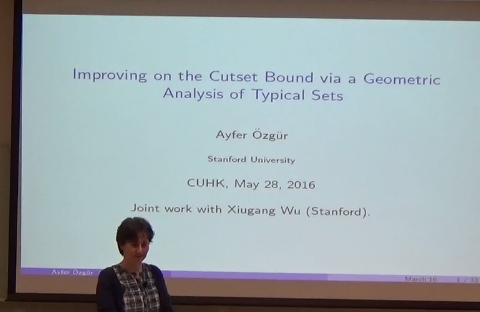
The cut-set bound developed by Cover and El Gamal in 1979 has since remained the best known upper bound on the capacity of the Gaussian relay channel. We develop a new explicit upper bound on the capacity of the Gaussian primitive relay channel which is tighter than the cut-set bound. Combined with a simple tensorization argument, this result also implies that the current capacity approximations for Gaussian relay networks, which have linear gap to the cut-set bound in the number of nodes, are order-optimal and leads to a lower bound on the pre-constant. Our approach significantly differs from the standard information-theoretic approach for proving upper bounds on the capacity of multi-user channels. We use measure concentration to analyze the probabilistic geometric relations between the typical sets of the n-letter random variables associated with a reliable code, which translate to new entropy inequalities between the random variables involved in the problem. Our approach can be extended to the discrete memoryless relay channel, and in particular, can be used to obtain surprising insights on a long-standing open problem posed by (Cover, 1987), namely, what is the minimum required relay-to-destination communication rate in order for the capacity of the relay channel to be equal to that of the broadcast cut.
Ayfer Ozgur is an Assistant Professor in the Information Systems Laboratory at Stanford University since 2012. Before joining Stanford, she was a postdoctoral researcher and a Ph.D. student at EPFL, Switzerland. She received her Ph.D. degree from EPFL in 2009 and B.Sc. and M.Sc. degrees in electrical engineering and physics from Middle East Technical University, Turkey in 2001 and 2004 respectively. From 2001 to 2004, she worked as a hardware design engineer for the Defense Industries Research and Development Institute in Turkey. She received the EPFL Best Ph.D. Thesis Award in 2010 and the NSF CAREER Award in 2013. Her research interests are in wireless and network communication, information and coding theory.
